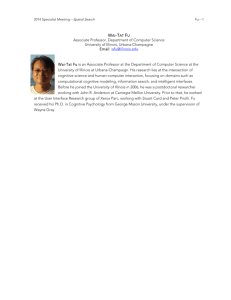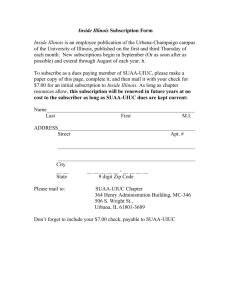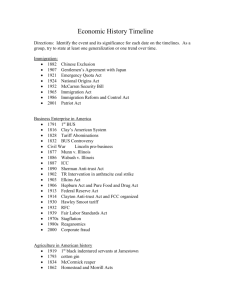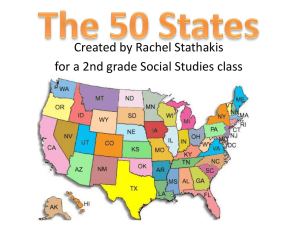The Populists
advertisement
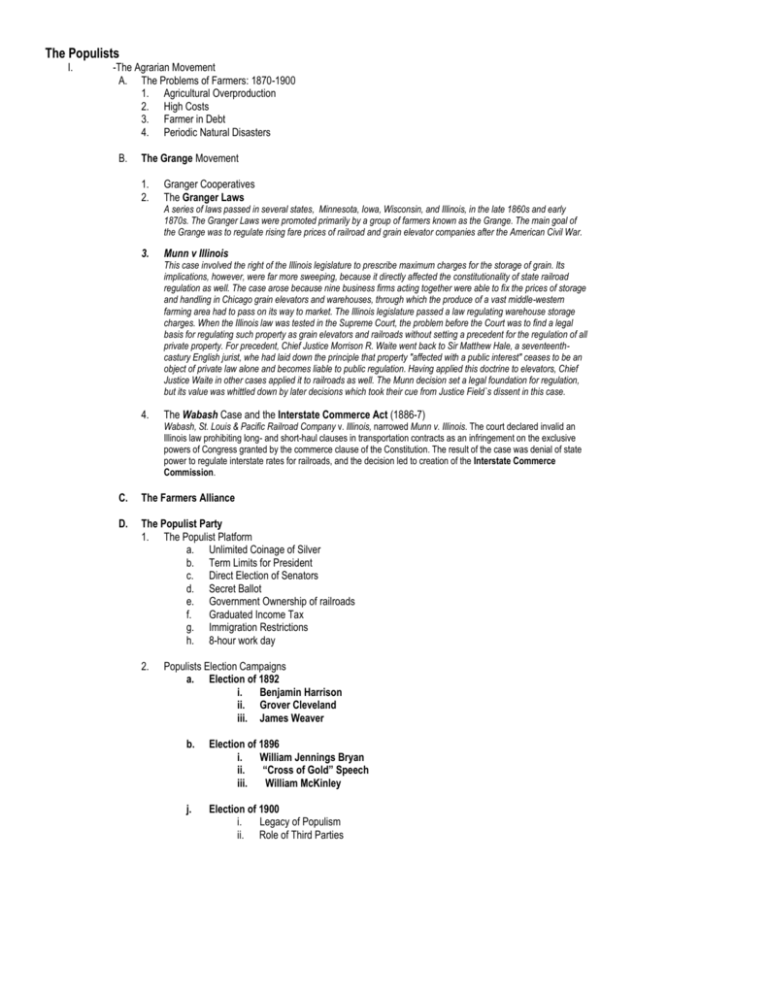
The Populists I. -The Agrarian Movement A. The Problems of Farmers: 1870-1900 1. Agricultural Overproduction 2. High Costs 3. Farmer in Debt 4. Periodic Natural Disasters B. The Grange Movement 1. 2. Granger Cooperatives The Granger Laws 3. Munn v Illinois 4. The Wabash Case and the Interstate Commerce Act (1886-7) A series of laws passed in several states, Minnesota, Iowa, Wisconsin, and Illinois, in the late 1860s and early 1870s. The Granger Laws were promoted primarily by a group of farmers known as the Grange. The main goal of the Grange was to regulate rising fare prices of railroad and grain elevator companies after the American Civil War. This case involved the right of the Illinois legislature to prescribe maximum charges for the storage of grain. Its implications, however, were far more sweeping, because it directly affected the constitutionality of state railroad regulation as well. The case arose because nine business firms acting together were able to fix the prices of storage and handling in Chicago grain elevators and warehouses, through which the produce of a vast middle-western farming area had to pass on its way to market. The Illinois legislature passed a law regulating warehouse storage charges. When the Illinois law was tested in the Supreme Court, the problem before the Court was to find a legal basis for regulating such property as grain elevators and railroads without setting a precedent for the regulation of all private property. For precedent, Chief Justice Morrison R. Waite went back to Sir Matthew Hale, a seventeenthcastury English jurist, whe had laid down the principle that property "affected with a public interest" ceases to be an object of private law alone and becomes liable to public regulation. Having applied this doctrine to elevators, Chief Justice Waite in other cases applied it to railroads as well. The Munn decision set a legal foundation for regulation, but its value was whittled down by later decisions which took their cue from Justice Field`s dissent in this case. Wabash, St. Louis & Pacific Railroad Company v. Illinois, narrowed Munn v. Illinois. The court declared invalid an Illinois law prohibiting long- and short-haul clauses in transportation contracts as an infringement on the exclusive powers of Congress granted by the commerce clause of the Constitution. The result of the case was denial of state power to regulate interstate rates for railroads, and the decision led to creation of the Interstate Commerce Commission. C. The Farmers Alliance D. The Populist Party 1. The Populist Platform a. Unlimited Coinage of Silver b. Term Limits for President c. Direct Election of Senators d. Secret Ballot e. Government Ownership of railroads f. Graduated Income Tax g. Immigration Restrictions h. 8-hour work day 2. Populists Election Campaigns a. Election of 1892 i. Benjamin Harrison ii. Grover Cleveland iii. James Weaver b. Election of 1896 i. William Jennings Bryan ii. “Cross of Gold” Speech iii. William McKinley j. Election of 1900 i. Legacy of Populism ii. Role of Third Parties



